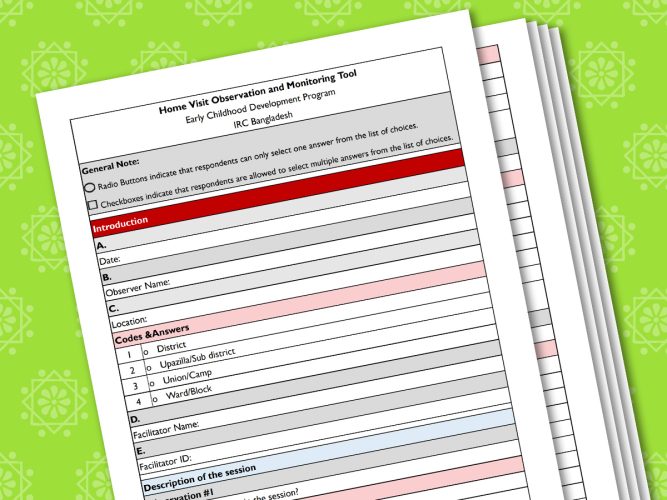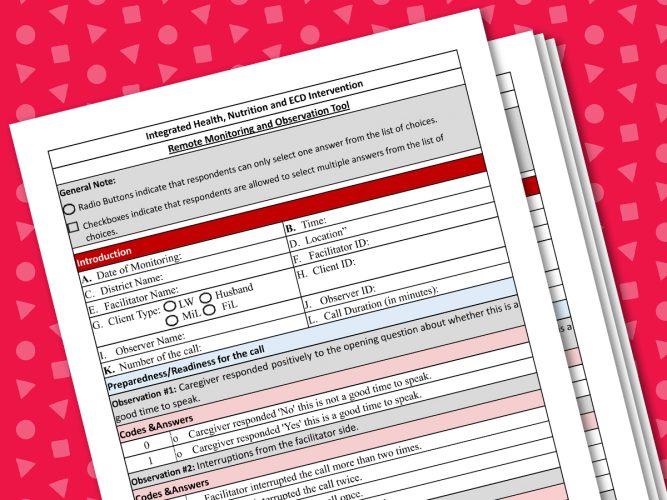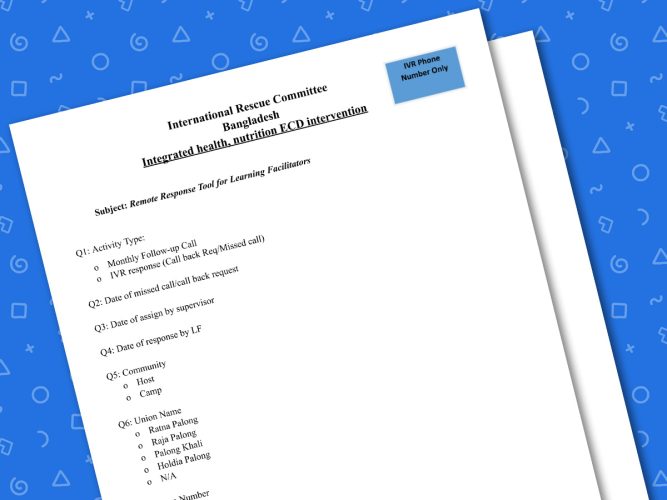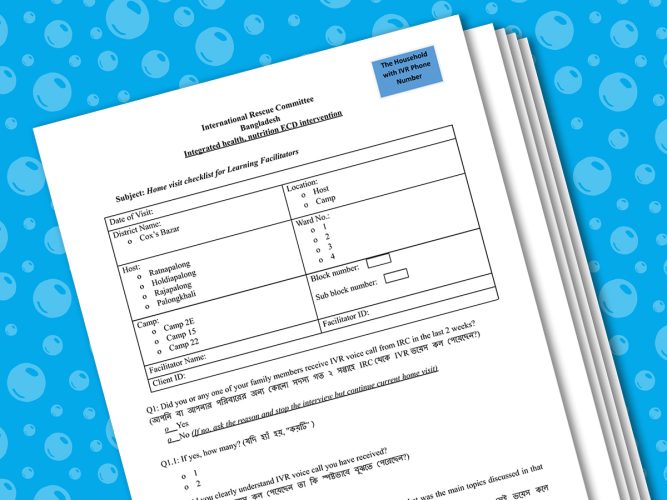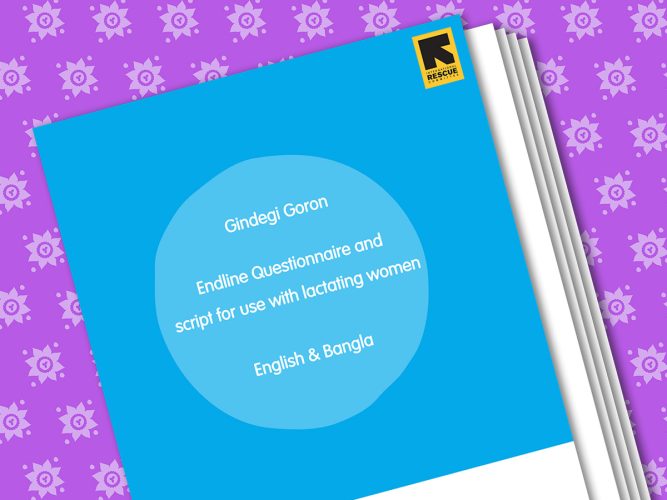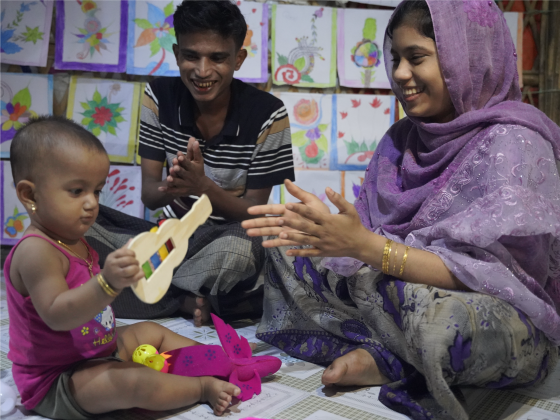
Gindegi Goron
Delivering playful parenting, health, and nutrition advice via an interactive voice response system to parents of children under 2 years old.
Through mobile phones, caregivers receive messages about health, nutrition, play, and early childhood development (ECD) through interactive voice response (IVR) calls, text messages, quiz questions, remote follow-up, and home visits.
Gindegi Goron aims to:
- Improve caregivers’ nutritional status and mental health; knowledge of early childhood health, nutrition, safety, and caregiving; and practices of responsive caregiving and early learning.
- Reach vulnerable caregivers and their households through sectors where they already seek services, such as health and nutrition, to provide comprehensive ECD support.
- Bring a ‘whole family approach’ for ECD at household level.
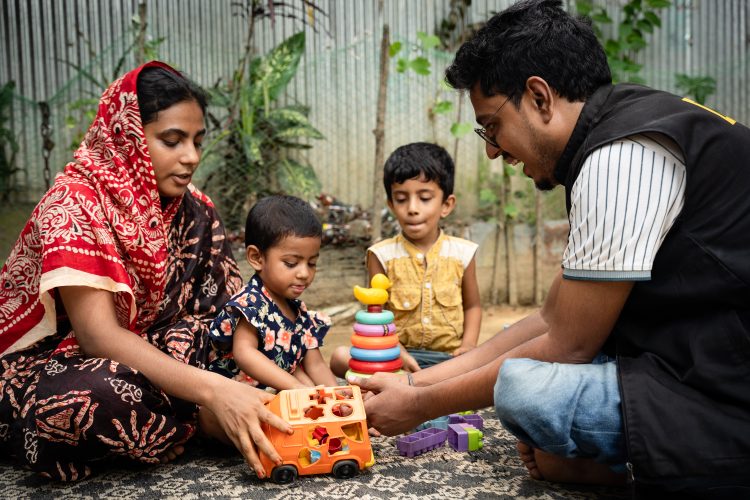
IRC project staff playing with children during home visit monitoring
Project staff taking time to practice and model play during a home visit.
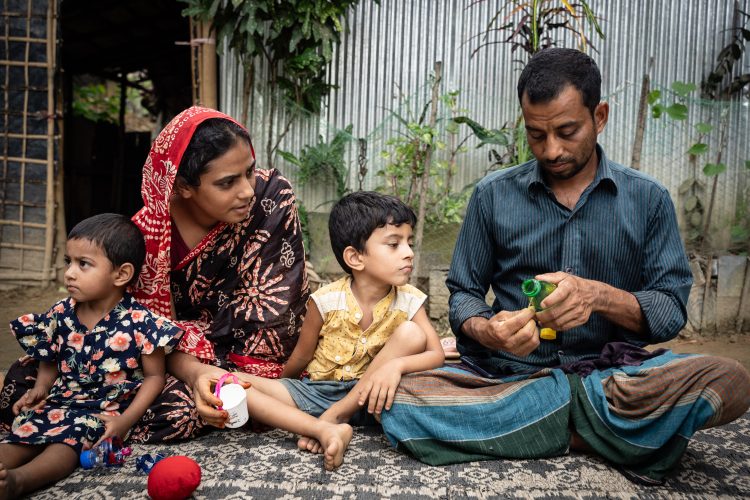
Father is making toy car for the child using bottle
A father makes a toy car out of a plastic bottle.
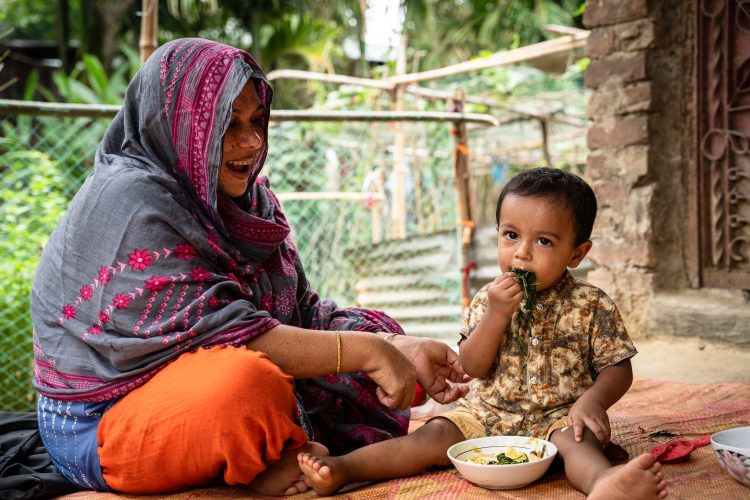
Child eating of his own makes mother happy and proud
A young child practicing eating independently.
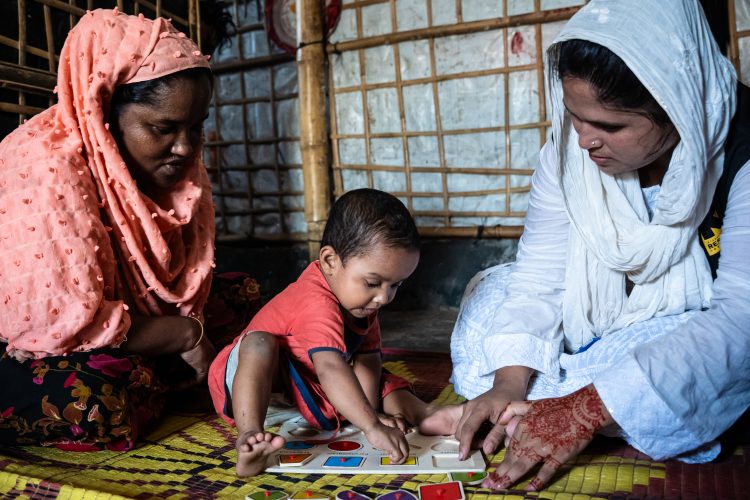
Children learn fast if the guidance is timely
Project staff using a puzzle from the Gindegi Goron homekit to practice fine motor skills, shape recognition, and colors.
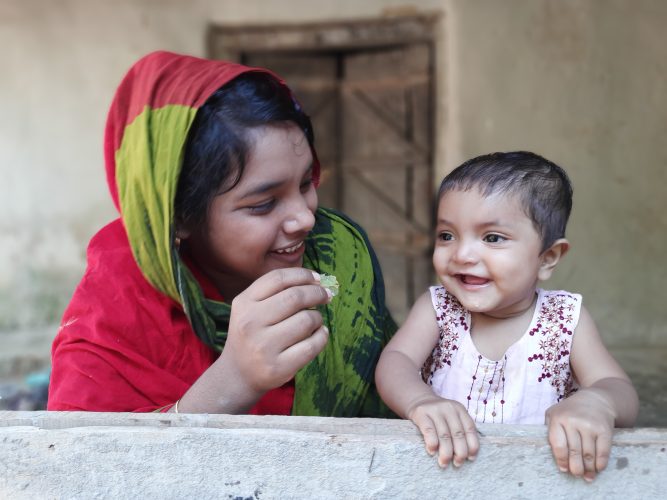
A happy mother can keep her child happy
A photo of a mother and young child sharing a moment of joy.
Integrated health, nutrition & ECD
Who we
worked with
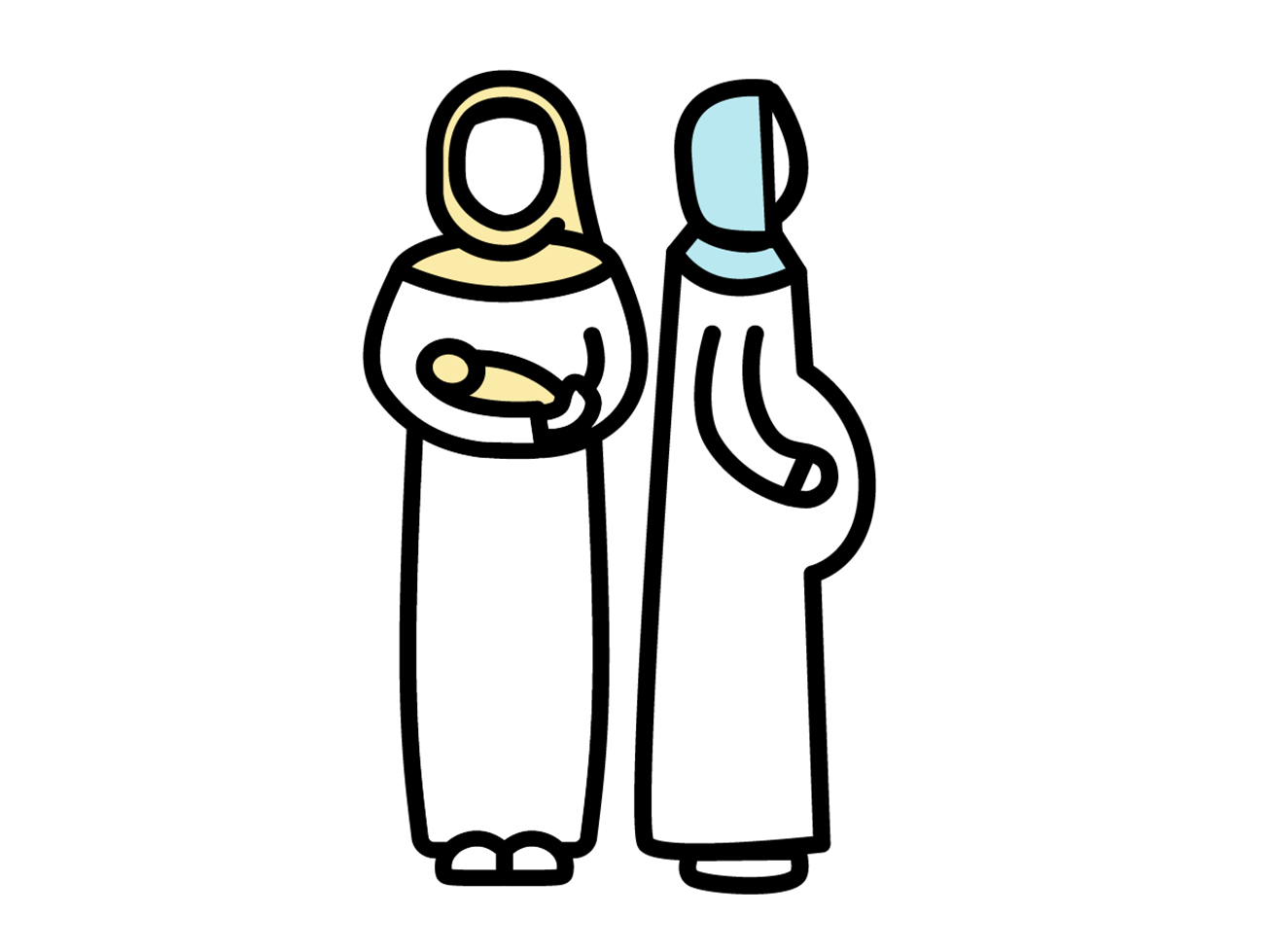
Pregnant women or mothers of children ages 0-2
plus, her husband and in-laws
Where we
worked
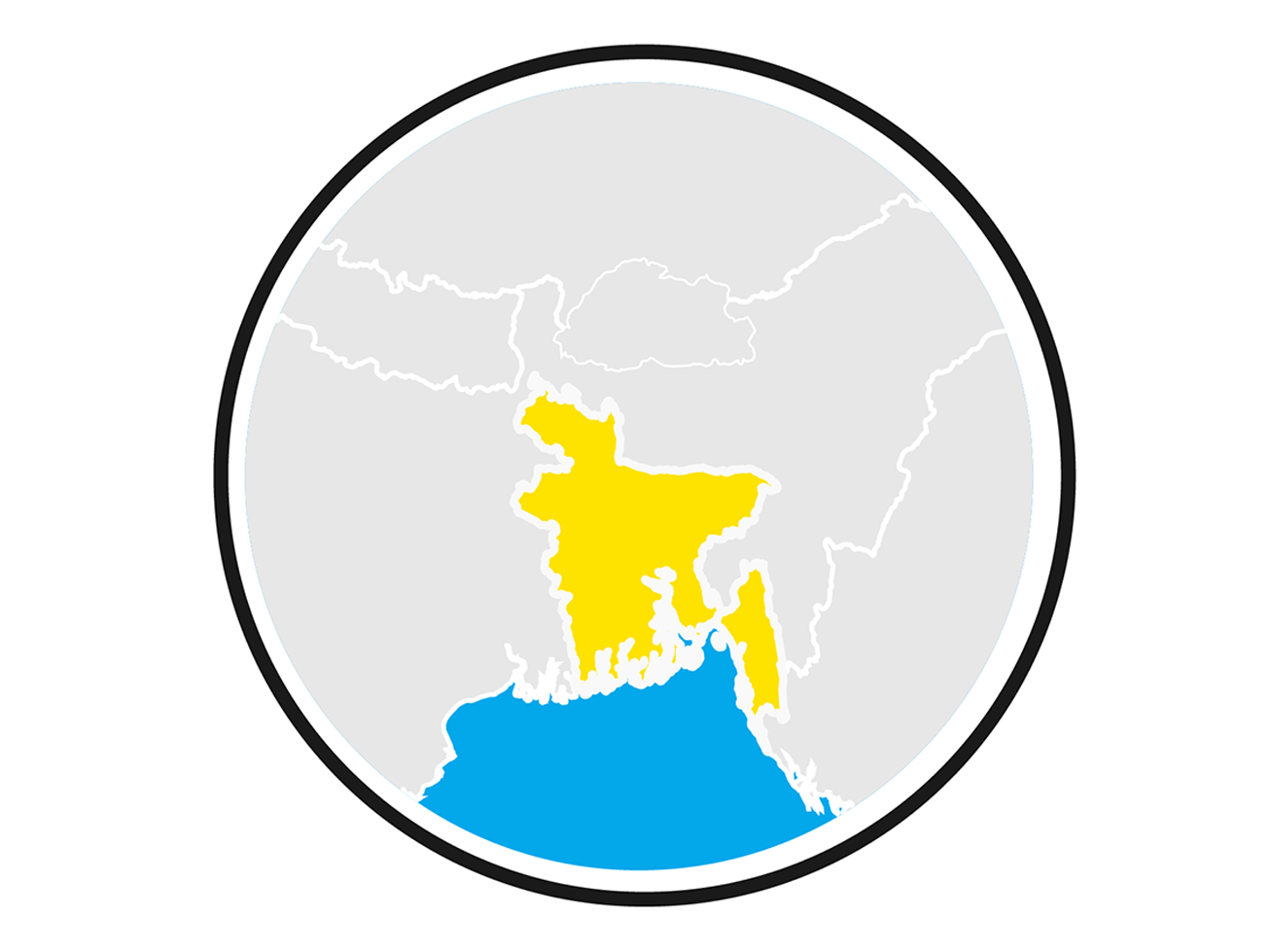
Bangladesh
How we delivered content
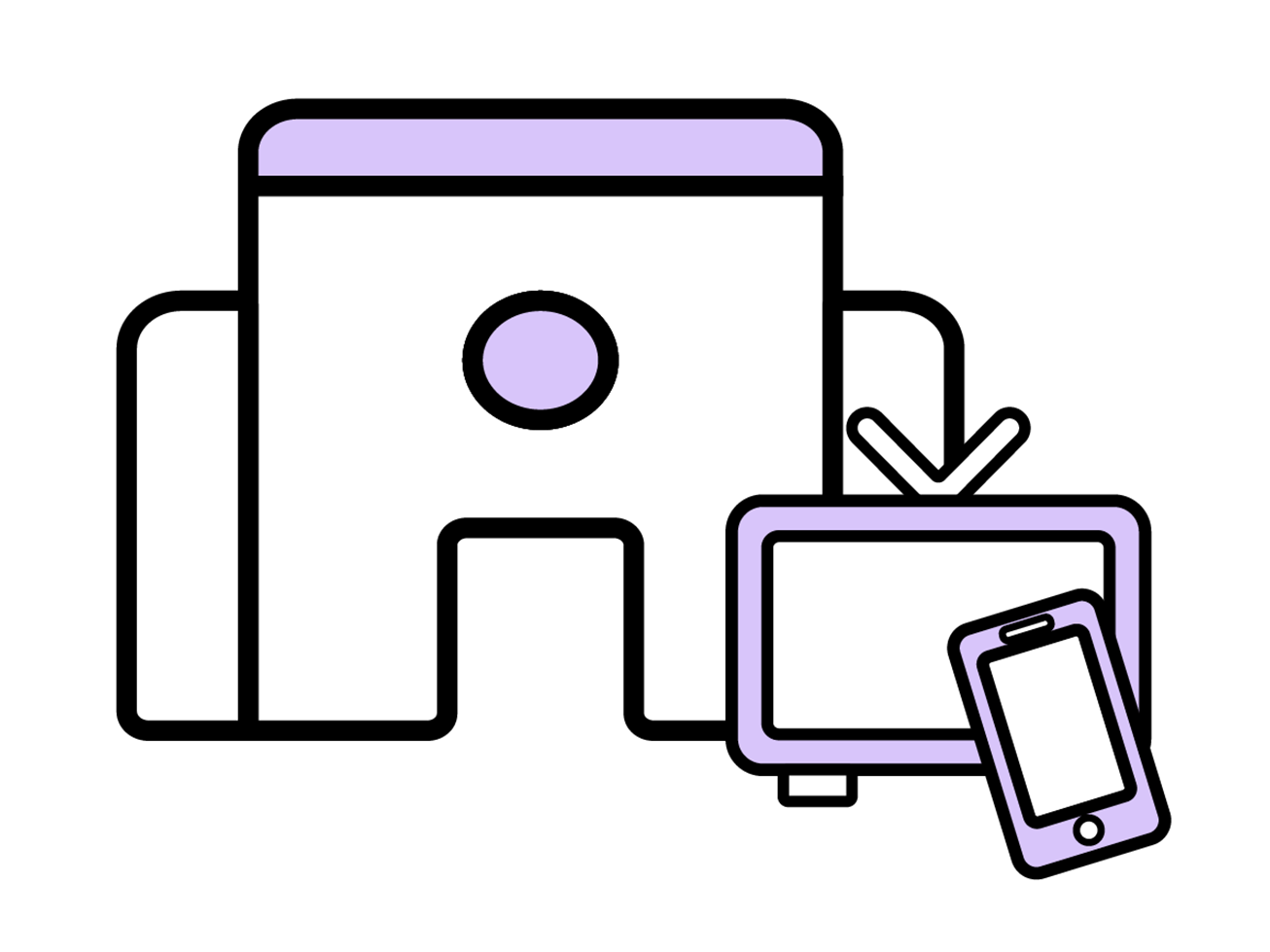
In person and remote
Recorded age appropriate weekly messages delivered via an automated call system, monthly follow up call, and monthly home visits
Frequency
.

On demand
Weekly calls, with follow ups as needed over the phone and in person.
25,358 People Reached
Gindegi Goron reached young children and their caregivers in Rohingya camps and Bangladeshi host communities.
Program Design: Piloting, Prototyping and Testing.
In order to design a remote ECD program with integrated health content, the IRC completed an assessment of household media, communication, and technology habits and channels, as well as household support structures. This research informed a pilot phase, that provided insights about usability, effectiveness and overall implementation. Program prototyping tested 3 client engagement strategies and IVR system improvements.
88% of participants reported that Play to Learn delivered a safe, relevant, and accessible program that families felt able to influence and shape.
After multiple years of program implementation and refinement, the IRC partnered with icddr,b to complete an impact assessment of the intervention.
Program Content and Delivery
The IRC partnered with the Maternal and Child Health Division of ICDDR,B, a public health research institute, to adapt its evidence-based home visiting program into call scripts for interactive voice response calls. Automated calls offered advice on nurturing care, including health and nutrition, responsive caregiving, and play-based early learning activities. In response to feedback highlighting the importance of prayer and religion in stress reduction, religious references were incorporated into the content.
Pregnant women and lactating women received differentiated messages, and for every message sent to a woman, a corresponding message on the same topic was delivered to her husband and in-laws.
In addition to IVR calls, clients received monthly recorded audio quizzes to assess understanding, bi-weekly (or as requested) phone check-ins from a trained ECD facilitator to offer additional support, and a kit of play materials. After COVID-19 restrictions lifted, the intervention integrated monthly home visits in response to client request.
Training and Supervision for Facilitators
Facilitators were selected from the community based on several key criteria:
- At least secondary or higher secondary educational qualifications
- Fluency in Chittagonian or Rohingya dialects
- Understanding of technology such as smartphones, WhatsApp, and the internet
- Females prioritized for in-person home visits, but both male and female facilitators engaged in remote support
Facilitators were trained to deliver culturally and contextually appropriate support services on a wide range of essential topics including:
- Development of low/no cost play materials
- Maternal and child health for expectant and new mothers including topics such as breastfeeding and vaccinations
- Child protection and mental health and psychosocial support (MHPSS)
- Child development, early stimulation, and positive parenting
- Technology use for program delivery and reporting.
Additionally, project staff were trained in supportive supervision and coaching skills to offer hands-on support to facilitators throughout program delivery.
This intervention was monitored using analytics from the IVR dashboard, data from facilitator monitoring of phone calls and home visits, and final assessments.
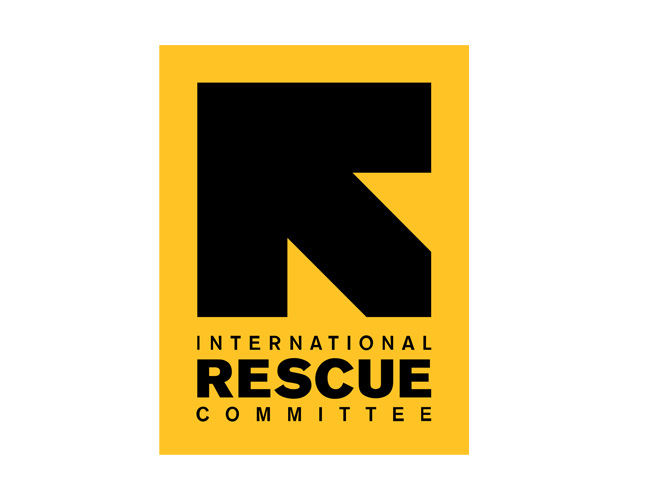
IRC
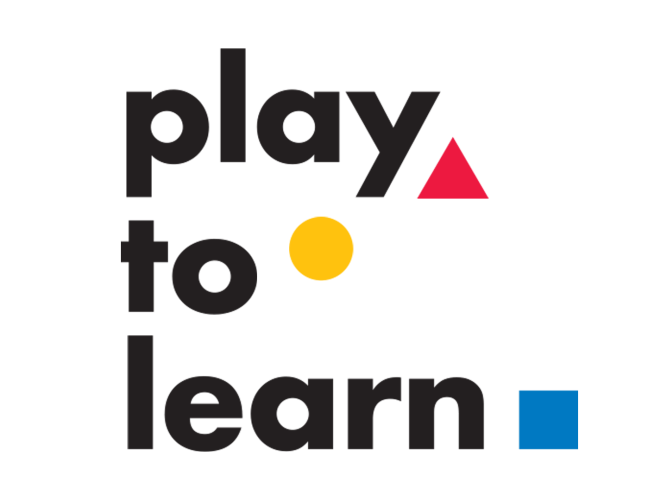
Play to Learn
